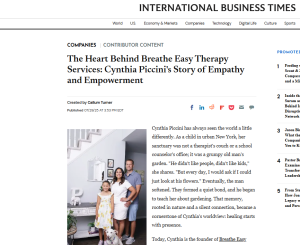By creation, humans are social animals. We gather because we crave the support and security offered by others. These groups protected us from hunger and animal attacks in the early days. Today, we seek refuge from existential and emotional threats in those social interactions.
But not everyone has somewhere they can turn when threatened, leading to physical and mental health issues that compound as time passes.
Research has shown that the power of social isolation cannot be ignored.
By itself, social isolation is a risk factor for mortality comparable to smoking and, like smoking, is associated with increased coronary heart disease and stroke (Reblin & Uchino, 2008; Menec et al., 2020).
Conversely, research shows that those with many or a few high-quality social relationships had decreased mortality rates even when baseline health was considered (Reblin & Uchino, 2008).
Research shows that social support, even the perception of it, can affect those going through significant emotional distress. Hui and Constantino (2021) found victims have a harder time reducing the unhealthy consequences of Intimate Partner Violence (IPV) when they perceived their availability of social and emotional support is low.
For many, the social isolation that accompanied strict quarantining requirements during the Covid-19 pandemic exacerbated pre-existing mental health issues such as loneliness, depression, and other serious mental health illnesses (Saltzman et al., 2020). Current research skims the surface of the effects that we will likely encounter in years to come.
That’s why we need our support systems – they help us understand these issues as they arise and to provide perspective in situations where it can be hard to break from one’s views. Within a social support system lives the space to vent feelings and receive constructive feedback to help us throughout our adventures. There are many ways to achieve social support and interaction; participating socially or being part of a network can help reduce social isolation, Reblin and Uchino (2020) wrote.
Sometimes, however, there are issues that you don’t want to talk about with friends or family, and that’s ok. That’s why therapists like those at Breathe Easy Therapy Services are there for you to help you work through tough spots. For more information, contact us here.
Tips to Keep and Create a Rock-Solid Social Network
- Accept a helping hand: Sometimes, it can be hard to ask for or accept help. If someone reaches out, connect with them.
- Stoke the fires of friendship: Reach out to a friend or family member via text, email, or call. Technology makes it possible to stay in contact with little fuss.
- Celebrate! When a friend succeeds, show them you’re excited for them; you’ll show them how much you care.
- Volunteer. You can make new friends who share your passions while helping a worthwhile cause.
- Join an online group: The key here is safety. Make sure you feel comfortable and are signed into a reputable site. Remember to use caution when meeting anyone you meet online.
*Information courtesy apa.org and buffalo.edu.
Resources
American Psychological Association. 2022. Manage stress: Strengthen your support network. https://www.apa.org/topics/stress/manage-social-support
Hui, V., & Constantino, R. E. (2021). The association between life satisfaction, emotional support, and perceived health among women who experienced intimate Partner violence (IPV) – 2007 behavioral risk factor surveillance system. BMC public health, 21(1), 641. https://doi.org/10.1186/s12889-021-10665-4
Menec, V. H., Newall, N. E., Mackenzie, C. S., Shooshtari, S., & Nowicki, S. (2020). Examining social isolation and loneliness in combination in relation to social support and psychological distress using Canadian Longitudinal Study of Aging (CLSA) data. PloS one, 15(3), e0230673. https://doi.org/10.1371/journal.pone.0230673
Reblin, M., & Uchino, B. N. (2008). Social and emotional support and its implication for health. Current opinion in psychiatry, 21(2), 201–205. https://doi.org/10.1097/YCO.0b013e3282f3ad89
Saltzman, L. Y., Hansel, T. C., & Bordnick, P. S. (2020). Loneliness, isolation, and social support factors in post-COVID-19 mental health. Psychological Trauma: Theory, Research, Practice, and Policy, 12(S1), S55–S57. https://doi.org/10.1037/tra0000703
University of Buffalo. School of Social Work. (2022) Developing Your Support System. https://socialwork.buffalo.edu/resources/self-care-starter-kit/additional-self-care-resources/developing-your-support-system.html





